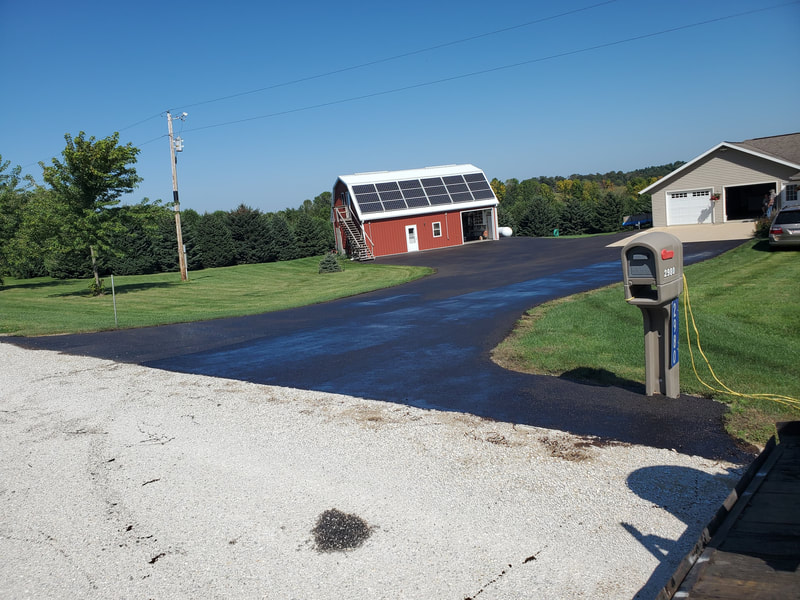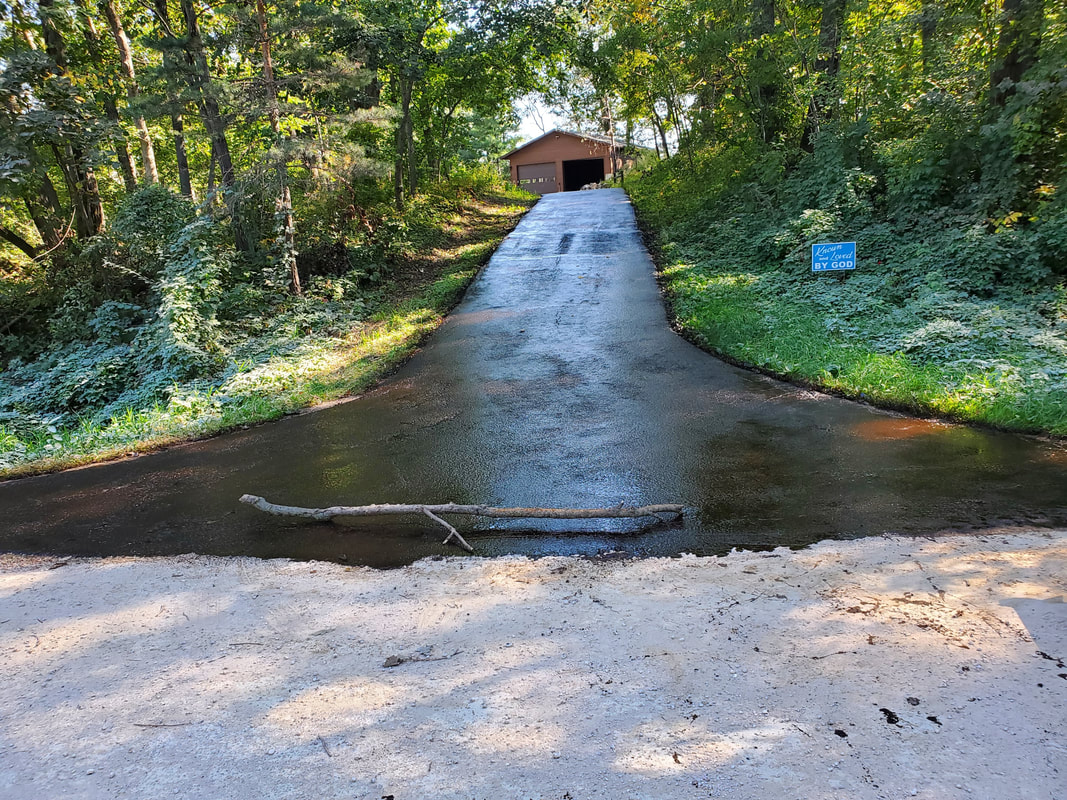Ever wondered how much it costs to seal your driveway? Well, you’re not alone. Whether you’re a homeowner looking to protect your pavement or just curious about the expenses involved, we’ve got you covered. In this guide, we’ll break down everything you need to know about driveway sealing costs, the factors that influence them, and how to make the most of your investment.
Sealing your driveway is one of those home maintenance tasks that can feel overwhelming, especially when you start diving into the numbers. But don’t sweat it—we’re here to simplify things for you. From the materials to the labor, we’ll walk you through the entire process so you can budget accordingly.
Think of driveway sealing as an investment in your property’s longevity. By protecting your driveway from weather elements, oil spills, and general wear and tear, you’re essentially extending its lifespan. But how much does it cost? Let’s dive in and find out!
What Factors Affect the Cost of Driveway Sealer?
When it comes to sealing your driveway, the cost isn’t a one-size-fits-all deal. Several factors come into play, and understanding them will help you estimate how much you’ll need to shell out. Here’s a quick rundown:
- Size of the driveway: Larger driveways naturally require more material and labor, which drives up the cost.
- Type of sealer: There are different types of sealers available, each with its own price tag. We’ll explore these options later in the article.
- Condition of the driveway: If your driveway has cracks or other damage, repairs may need to be done before sealing, adding to the overall cost.
- DIY vs. Professional: Choosing between doing it yourself or hiring a professional can significantly impact your budget.
Now that we’ve touched on the basics, let’s dive deeper into each of these factors.
Understanding the Different Types of Driveway Sealers
Not all driveway sealers are created equal. Depending on your needs and budget, there are various options to choose from. Let’s take a closer look at the most common types:
1. Coal Tar Sealer
Coal tar sealer has been a popular choice for decades due to its durability and protective qualities. It’s known for its ability to resist oil, gas, and other chemicals, making it ideal for driveways that see a lot of vehicle traffic. However, it’s important to note that coal tar contains polycyclic aromatic hydrocarbons (PAHs), which can be harmful to the environment. Regulations in some areas have limited its use, so be sure to check local guidelines before going this route.
2. Asphalt Emulsion Sealer
Asphalt emulsion sealers are a more environmentally friendly alternative to coal tar. They’re made from asphalt and water, making them easier to apply and less toxic. While they may not offer the same level of chemical resistance as coal tar, they still provide excellent protection against weather elements and UV rays. Plus, they’re generally more affordable, which is always a bonus.
3. Acrylic Sealer
Acrylic sealers are gaining popularity due to their ease of application and long-lasting results. They’re water-based, which means they’re eco-friendly and easy to clean up. Acrylic sealers also enhance the appearance of your driveway by providing a glossy finish. However, they tend to be on the pricier side compared to other options.
Choosing the right sealer depends on your specific needs and budget. Each type has its pros and cons, so it’s important to weigh them carefully before making a decision.
Breaking Down the Average Costs
So, how much does it really cost to seal your driveway? Let’s break it down:
- DIY Costs: If you’re handy and prefer to tackle the job yourself, you can expect to pay anywhere from $0.10 to $0.30 per square foot for materials. Keep in mind that this doesn’t include any tools you might need to purchase.
- Professional Costs: Hiring a professional will cost you more, but you’ll benefit from their expertise and equipment. On average, professional driveway sealing services charge between $0.15 and $0.40 per square foot, depending on the size and condition of your driveway.
It’s worth noting that these are just rough estimates. The actual cost will vary based on factors like location, sealer type, and the condition of your driveway. For a more accurate estimate, consider getting quotes from multiple contractors.
DIY vs. Professional: Which is Right for You?
Deciding whether to seal your driveway yourself or hire a professional is a big decision. Here’s a quick comparison to help you make the right choice:
Pros of DIY Driveway Sealing
- Cost-effective: You’ll save money on labor costs by doing it yourself.
- Flexibility: You can choose when to do the job based on your schedule.
- Learning experience: If you enjoy DIY projects, this is a great opportunity to learn a new skill.
Cons of DIY Driveway Sealing
- Time-consuming: Preparing the driveway, applying the sealer, and allowing it to dry can take several days.
- Requires effort: It’s physically demanding work, especially if you have a large driveway.
- Potential for mistakes: Without proper experience, you might end up with uneven coverage or other issues.
Pros of Hiring a Professional
- Expertise: Professionals know exactly what they’re doing and can ensure a high-quality job.
- Efficiency: They have the right tools and equipment to get the job done quickly and efficiently.
- Warranty: Many contractors offer warranties on their work, giving you peace of mind.
Cons of Hiring a Professional
- Higher cost: As mentioned earlier, hiring a professional will cost more than doing it yourself.
- Less control: You’ll have to rely on their schedule and availability.
Ultimately, the decision comes down to your budget, time constraints, and comfort level with DIY projects.
The Importance of Proper Preparation
Whether you’re sealing your driveway yourself or hiring a professional, proper preparation is key to achieving the best results. Here’s what you need to do:
- Clean the driveway: Remove any dirt, debris, or oil stains using a pressure washer or a degreaser.
- Repair cracks and potholes: Fill in any cracks or potholes with the appropriate filler material to ensure a smooth surface.
- Let it dry: Allow the driveway to dry completely before applying the sealer. This can take anywhere from 24 to 48 hours, depending on weather conditions.
Skipping these steps can lead to poor sealer adhesion and a shorter lifespan for your driveway. Don’t cut corners here—it’s an essential part of the process.
How Often Should You Seal Your Driveway?
Sealing your driveway isn’t a one-time job. To maintain its protective properties, you’ll need to reapply the sealer periodically. But how often should you do it? Here’s a general guideline:
- Every 2-3 years: For most driveways, resealing every 2-3 years is sufficient to keep it protected and looking great.
- More frequently for high-traffic areas: If your driveway sees a lot of heavy vehicle traffic, you may need to seal it more often.
Regular maintenance not only extends the life of your driveway but also enhances its appearance. Keep an eye on its condition and reseal as needed.
Common Mistakes to Avoid When Sealing Your Driveway
Even the best-laid plans can go awry if you’re not careful. Here are some common mistakes to avoid when sealing your driveway:
- Applying sealer too soon: Make sure your driveway is completely clean and dry before applying the sealer. Rushing this step can lead to poor results.
- Using the wrong sealer: Different sealers are designed for different surfaces and conditions. Choose the right one for your specific needs.
- Not applying enough coats: Applying only one coat of sealer may not provide adequate protection. Follow the manufacturer’s instructions for the recommended number of coats.
By avoiding these pitfalls, you’ll ensure a successful sealing job that will protect your driveway for years to come.
Environmental Considerations
In recent years, there’s been a growing concern about the environmental impact of driveway sealers. As we mentioned earlier, coal tar sealers contain PAHs, which can be harmful to aquatic life and ecosystems. Many regions have implemented regulations to limit or ban the use of coal tar sealers.
If you’re environmentally conscious, consider opting for eco-friendly alternatives like asphalt emulsion or acrylic sealers. Not only are they better for the planet, but they’re also generally safer for you and your family.
Final Thoughts and Call to Action
Sealing your driveway is an essential part of maintaining your property’s value and appearance. By understanding the costs involved, the different types of sealers available, and the preparation required, you can make an informed decision about how to proceed.
Remember, whether you choose to do it yourself or hire a professional, proper preparation and regular maintenance are key to getting the most out of your investment. So, what are you waiting for? Get started on protecting your driveway today!
Have any questions or tips to share? Drop a comment below and let’s chat! And don’t forget to share this article with your friends and family who might find it useful. Together, let’s keep those driveways looking sharp and protected.
Table of Contents
- What Factors Affect the Cost of Driveway Sealer?
- Understanding the Different Types of Driveway Sealers
- Breaking Down the Average Costs
- DIY vs. Professional: Which is Right for You?
- The Importance of Proper Preparation
- How Often Should You Seal Your Driveway?
- Common Mistakes to Avoid When Sealing Your Driveway
- Environmental Considerations
- Final Thoughts and Call to Action


